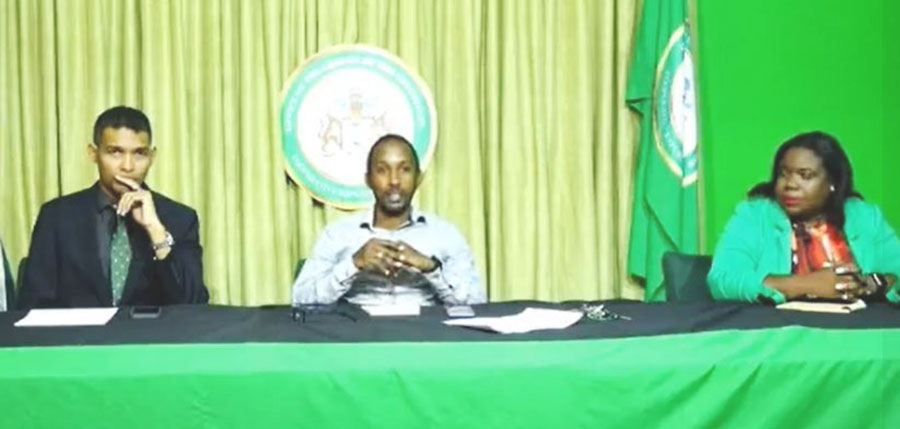The Opposition during its press conference yesterday has once again deemed the government’s 6.5 per cent salary increase for public servants “a slap in the face,” and chided the Ali-led regime for defending its position on the subject.
PNCR member, economist, Elson Low, said that having failed to convince anyone with the previous “bogeymen” of inflation and the Dutch Disease, Vice President Bharrat Jagdeo and other members of the cabinet now claim that the government cannot sustain meaningful increases for those in public service.
He told reporters at the press briefing that the public service is a net contributor to the economy and performs a myriad of functions, which the country stands to lose far more from, than its wage bill.
Low pinpointed that from healthcare, education, law and order, national defence, tax administration and collection, provision of water and electricity, design and supervision of infrastructure projects, to natural resources management (just to name a few), the public service contributes to the society and economy far over its maintenance cost.
The economist argued that it is therefore not a burden on the national treasury as some falsely and deceptively argue. “The public service, additionally, can contribute substantially more through reforms to improve efficiencies and performance.”
He added that “More robust auditing of Exxon, for example, can prevent leakage of vital government revenues, with all this being said, the public service can pay for itself and much more.”
Low opined that the government currently has the fiscal space to pay public servants much more with the 2023 National Budget now standing at over GY$900 billion. Further, he projected that oil revenues will grow when the third Floating Production Storage and Offloading (FPSO) commences operations.
“Our per capita income is already one of the highest in the world. How that money is allocated depends on how a government sees its priorities. For the PPP, the emphasis is on infrastructure spending to benefit its cronies.”
Low who is also the Opposition’s Youth Policy Advisor is adamant that the APNU +AFC government will put the people first and at the centre of national development in its fiscal plan.
“We see this not only as a moral obligation but as an economic investment in our human resources. Our budgets therefore will reflect this philosophy”, the PNCR Member stated. He believes that the PPP government fails to grasp public servants as individuals who are also consumers, investors, savers, and producers.
“The PPP will never understand that public servants are also parents, main breadwinners, and family members.”
“Along with other citizens, they are also owners of Guyana’s natural endowment and have rights to a decent quality of life. As such, they too must benefit from our vast oil wealth. They must not be treated as second-class citizens.”
The economist assured that the opposition will continue to expose the government’s attempt to deny paying proper wages to civil servants by hiding behind the mask of financial sustainability. He is of the staunch view that financial sustainability is far more complex than the PPP would like the opposition and citizens to believe.
Low suggested that this depends on how the government sets its national priorities and recognises the net contribution of public service to the economy.
He explained that financial sustainability weighs in on how a government can increase this contribution through a comprehensive public service reform, and it appreciates that its workers are more than mere employees.




